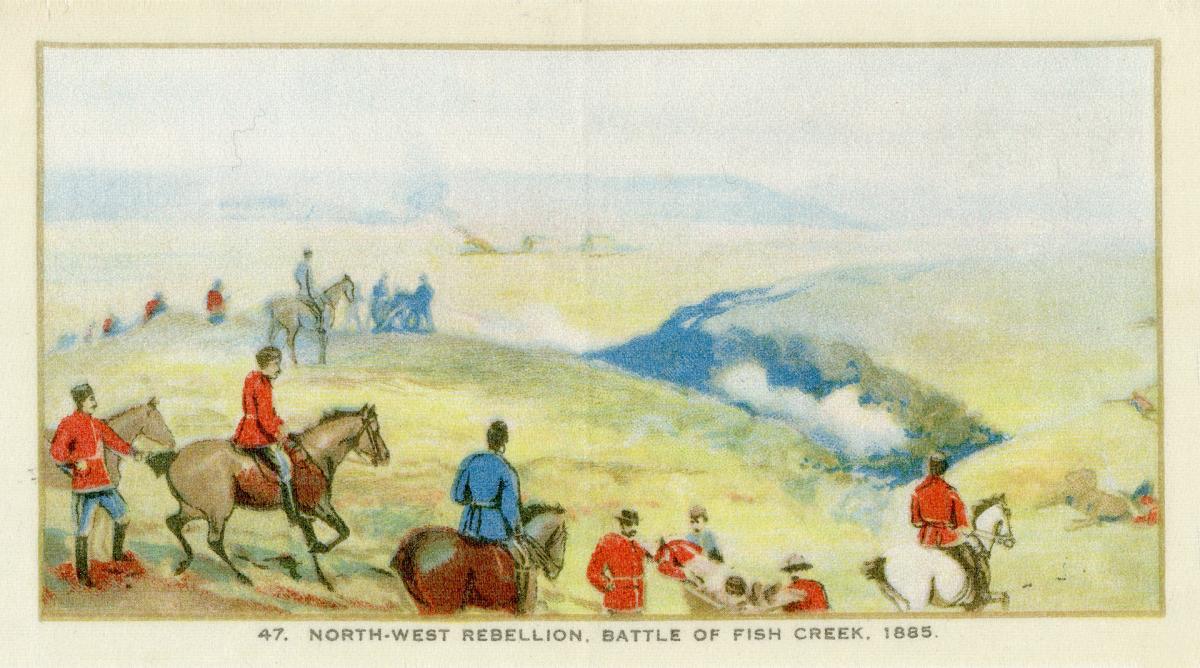By M. Gouldhawke
When Royal Canadian Mounted Police (RCMP) officers raise the Métis flag outside of their detachments on Manitoba’s provincial Louis Riel Day (in February) or the national Louis Riel Day (on November 16), not everyone forgives and forgets the prominent role the force played in his execution in Regina in 1885 after the Northwest Resistance.
To this day, every RCMP cadet, no matter where they later end up being deployed in Canada, is initially trained at the site where Riel was hanged, the RCMP Academy, Depot Division in Regina, Saskatchewan (Treaty 4 territory).
Yet, there’s still not even a marker at the exact site of the execution. A point brought up in terms of suggestions for reconciliation in a “Métis position paper” written for the RCMP in 2022.
Which raises the question, is reconciliation even possible, given the history of RCMP and Métis relations?
In a 2019 interview, Métis author Maria Campbell explained, “About reconciliation, there is no such thing.”
“We can’t go back to a good time to begin again because there never was a ‘good’ time,” she clarified.
Instead, Campbell suggested, we can only try to set things right, but this depends on whether other people are willing to work with us.
In a 1989 Toronto Star interview, Campbell explained that “The RCMP was established in Canada to protect the property of the conquerors and to subdue the conquered.”
The standard myth of the Cypress Hills Massacre of 1873 as the impetus for the creation of the North-West Mounted Police (the original name of the RCMP) was also argued against by S.W. Horrall in his 1972 article for the Canadian Historical Review, where he pointed out that plans for the force had already begun in 1869.
The RCMP was to be a paramilitary colonial police force, modeled on forces in Britain’s other colonies, such as Ireland and India, with an initial roster that even included some Royal Irish Constabulary members. Securing stolen land, enforcing settler law and defending brutal colonial institutions was to be their main mission.
1869 was the year the Métis-led Red River Resistance began, giving further cause for the development of the RCMP.
If there was any doubt remaining as to their intended role, the Canadian Minister of Justice A.A. Dorion admitted in 1874 that the RCMP’s purpose was in part to “give confidence to peaceable Indians and intending settlers.”
A decade later, the Prime Minister of Canada himself, John A. Macdonald, confirmed that “the business of the Mounted Police is principally to keep peace between Whitemen + Indians.”
With the 1885 Northwest Resistance, the RCMP would first enter into battle with Métis and Cree forces, and come out the losers during most of those fights, needing to be saved by the army.

North-West rebellion. Battle of Fish Creek 1885, 1926. Source: Baldwin Collection of Canadiana.
After the defeat of the resistance, however, collective punishment followed (not just with the hanging of Riel), as Métis who weren’t even part of the resistance were arrested and imprisoned.
In 1961, the RCMP even reprinted a Prince Albert Daily Herald article in its own RCMP Quarterly magazine which claimed that Riel was “mainly responsible for the unsettled conditions which led to the founding of the Force.”
In more recent times, the RCMP, under legal and political pressure, was made to return some of Riel’s personal items to the Métis people in 2017. But as previously mentioned, a marker at the site of Riel’s hanging remains to be seen.
Although the RCMP and official Métis organizations argue that reconciliation is still a possibility, grassroots people maintain skepticism and an abolitionist mindset, in the spirit of Métis leader Gabriel Dumont, who once asked a Native police collaborator, “How is it that yesterday you fought against the police, and today you help them look for me?”
In response to RCMP raids of Wet’suwet’en territory in 2020, Métis people wrote and co-signed a public letter in solidarity with Wet’suwet’en land defenders who oppose the Coastal Gaslink pipeline.
As RCMP violence against all Indigenous peoples only escalates, contributing to already disproportionate rates of incarceration, reconciliation seems much more like a swindle than a dream. Not to mention an impediment to the resistance necessary to defend our lands and peoples, in solidarity with all our relations.